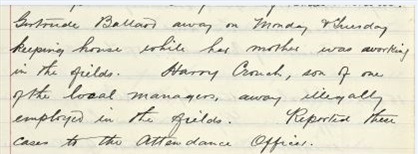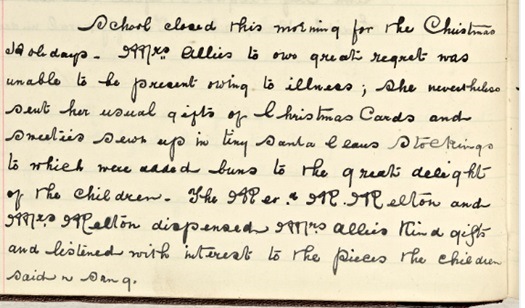Log Books – more than school life
- 22nd November 2018
School log books can provide the researcher with information on the day-to day running of a local school but also how national events affected school life. Here we explore some of the varied information that be found in our collections.
| As anyone will know, who has tried to find out about the life of the common man in the nineteenth century, original sources are few and far between. Historians have had to speculate about how national events have impacted upon the working classes. In this way it is taken that the ordinary man from Lincolnshire, for example, has had the same life experiences, as the same class of man from Yorkshire. If the account of the lives of working men are hidden from history then how much more so are those of working class women and children?
Increasingly historians are looking to discover how the nature of locality has shaped the experiences of the people who lived in them. The problem still remains how can this research be conducted when there are so few resources?
Where can the researcher find out about the daily life? The study of school log books may provide some of the answers! Log books were kept by the Headteacher who legally had to make at least one entry per week. They rarely list children’s names (only those who won prizes or required harsh punishment) but they do provide an insight into school and community life.
An entry from Drakes Broughton School, in 1869, records “Admission refused to children under two years.” The mother was out all day occupied with field work.
Mrs Allies was a respected visitor to St Peter’s Infants. This entry of 1897 shows why:
If you would like to conduct your own research using log books then look at our website to see which volumes WAAS hold: http://e-services.worcestershire.gov.uk/HistoricSchoolSearch/ Please note that whilst log books are wonderful resources there are some restrictions to access. In the light of the Data Protection Act of 2003 we have set a closure period of 100 years on school log books. For further advice on how to proceed, please contact Worcestershire Archive and Archaeology Service: http://www.worcestershire.gov.uk/info/20257/contact_the_archive_and_archaeology_service |






Post a Comment